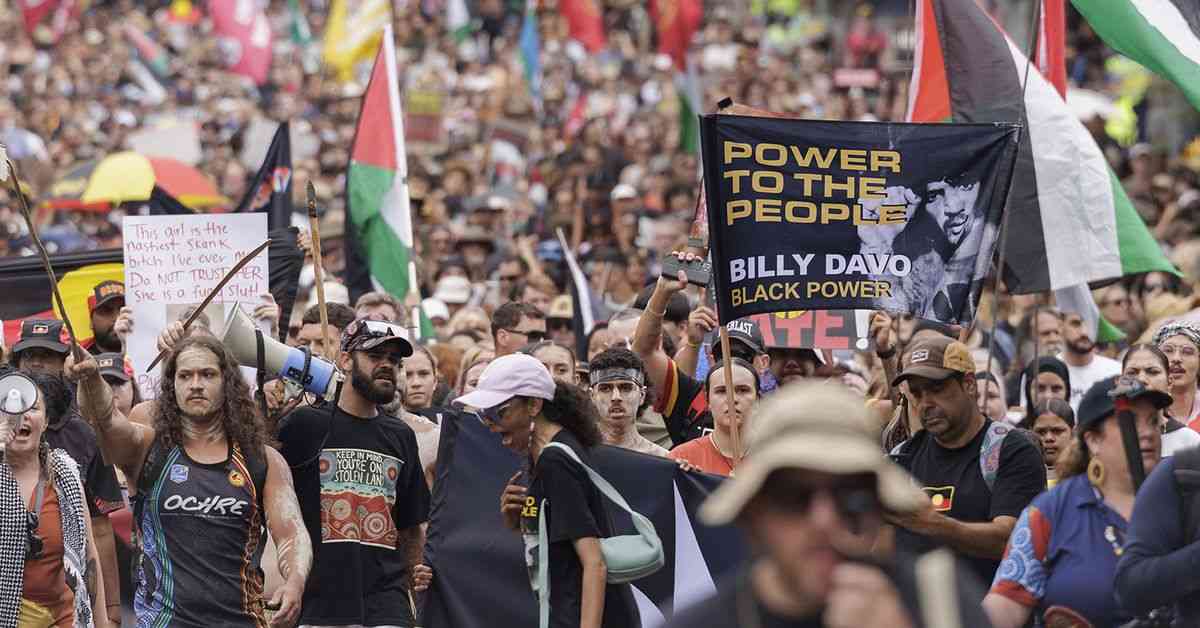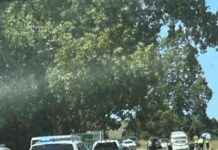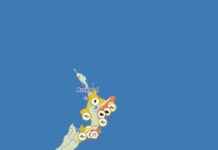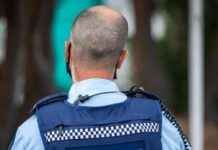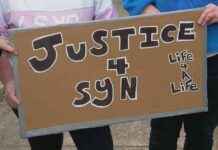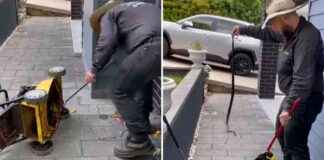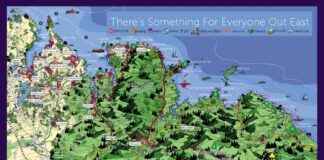Title: Nationwide ‘Invasion Day’ Protests: Demonstrations Sweep Australia in Defiance of Australia Day
Tens of thousands of Australians took to the streets on January 26 to participate in “Invasion Day” protests across the country, marking a significant moment of resistance against the celebration of Australia Day. While many Australians view January 26 as a day of national pride and celebration, for Indigenous communities and their allies, it symbolizes a painful history of colonization and dispossession.
In Adelaide, the peaceful atmosphere of the Survival Day march was disrupted when members of a neo-nazi group attempted to interfere with the protest. South Australia Police swiftly intervened and made several arrests, ensuring the safety of the demonstrators. This clash serves as a stark reminder of the ongoing tensions surrounding Australia Day and the complex emotions it evokes among different groups in society.
The heart of the protests unfolded in Melbourne and Sydney, where thousands of people gathered to voice their opposition to the use of January 26 as the national day. In Sydney’s Belmore Park, nearly 1000 individuals came together to demand recognition of Indigenous sovereignty and a reevaluation of the historical significance of Australia Day. The streets of Sydney’s CBD were filled with impassioned protesters, chanting slogans and holding signs that called for justice and reconciliation.
In Melbourne, the crowds swelled outside Parliament House as demonstrators combined their voices in a powerful show of solidarity. Members of the National Socialist Network attempted to disrupt the protest, but their efforts were met with a strong police presence that maintained order amidst the escalating tensions. Indigenous elder Uncle Gary Foley delivered a moving address, emphasizing the resilience and enduring presence of First Nations peoples in Australia.
Meanwhile, in Canberra, protesters gathered outside Parliament House, carrying signs that proclaimed “No pride in genocide” and “sovereignty never ceded”. The air was filled with chants and the spirit of defiance as demonstrators marched through the streets, demanding recognition of the injustices faced by Indigenous communities. Across the country, similar rallies and events were held in Brisbane, Cairns, and other cities, with participants braving the scorching heat to make their voices heard.
As the day unfolded, it became clear that the sentiment behind the Invasion Day protests was not confined to a single city or group of people. Indigenous events and celebrations were taking place in every capital city, drawing attention to the need for meaningful dialogue and action towards reconciliation. The diversity of voices and experiences represented at these protests underscored the complex legacy of Australia Day and the ongoing journey towards healing and understanding.
In the face of rising tensions and conflicting narratives, the Invasion Day protests served as a poignant reminder of the unresolved issues surrounding Australia’s national day. The clashes, arrests, and impassioned speeches captured the raw emotions and deep-seated grievances that continue to shape the country’s social landscape. As the sun set on January 26, the echoes of protest reverberated across the nation, signaling a collective call for justice, recognition, and reconciliation.
